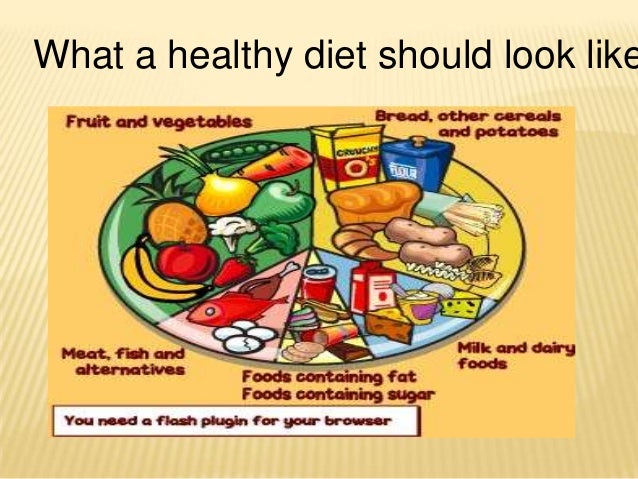
Image source: https://image.slidesharecdn.com/balanceddiet-140128150341-phpapp02/95/balanced-diet-healthy-living-2-638.jpg?cb=1390921515
While teenagers are notorious for their love of junk food and odd eating habits, it is important that they eat a proper diet. A healthy diet for teenagers can help them do better in school and promote optimal physical development as their bodies mature.
A healthy diet for teenagers starts with consuming the proper amount of calories. On average, a teen girl needs between 1,800 and 2,100 calories each day, while a teen boy needs between 2,200 and 2,700 calories to meet his energy needs. Eating too many calories can lead to obesity and associated complications, while eating too few can leave teens lacking energy and facing other health problems. This is meant to be a guideline, and may vary for each individual. Teenagers may need to vary their caloric intake based on their specific needs.
Ultimately, a healthy diet for teenagers should include fresh fruits and vegetables as a foundation. For optimal nutrition, a teenager should aim for at least 3 to 5 servings of such foods each day. Additionally, variety is important with fruits and vegetables. A good rule to follow is to eat a wide variety of colors. Some great choices include red and orange peppers, broccoli, red, blue, and black berries, and citrus fruits, which are loaded with Vitamin C.
Also when considering a healthy diet for teenagers, it is important for teens to get enough protein, especially among boys, who may want to build muscle. The best way to get protein is for teenagers to eat roughly two servings of meat, eggs, nuts, soy products, or high-protein dairy each day. Teenagers also need 6 to 11 servings of carbohydrates every day. However, many teens actually eat too many carbohydrates. A serving can be as small as 1 slice of bread or half a cup of cooked pasta.
While most people think fats are bad, a healthy diet for teenagers actually needs some fats as part of their diet. However, not all fats are created equal. Teens should avoid dangerous trans fats and saturated fat. Instead, they should opt for the healthy fats found in nuts, oils, and fish. These fats promote proper brain function and help keep joints and ligaments healthy.
When it comes to vitamins and minerals, calcium is one of the most important components of a healthy diet for teenagers. During the teenage years, bones finish growing and reach their final adult form. Calcium promotes strong, dense, healthy bones that are protected from fractures and breaks. In addition to getting calcium from dairy, this important nutrient can also be found in nuts like almonds as well as dark green leafy vegetables. Ideally, 2 to 3 servings daily of such calcium rich foods should be part of a teenager's diet. In addition to calcium, iron is also important to teens, especially girls. The best sources of iron are red meat, beans, eggs, and certain dried fruit.
Ultimately, teenagers should try to eat as healthy as possible without sacrificing the fun outings they enjoy. It is okay to include some junk food, as long as teens do not go overboard. Also, keep in mind that sometimes efforts to eat healthy turn into eating disorders. So, it is important for parents to be aware of changes in their teenager's eating habits and behaviors.
